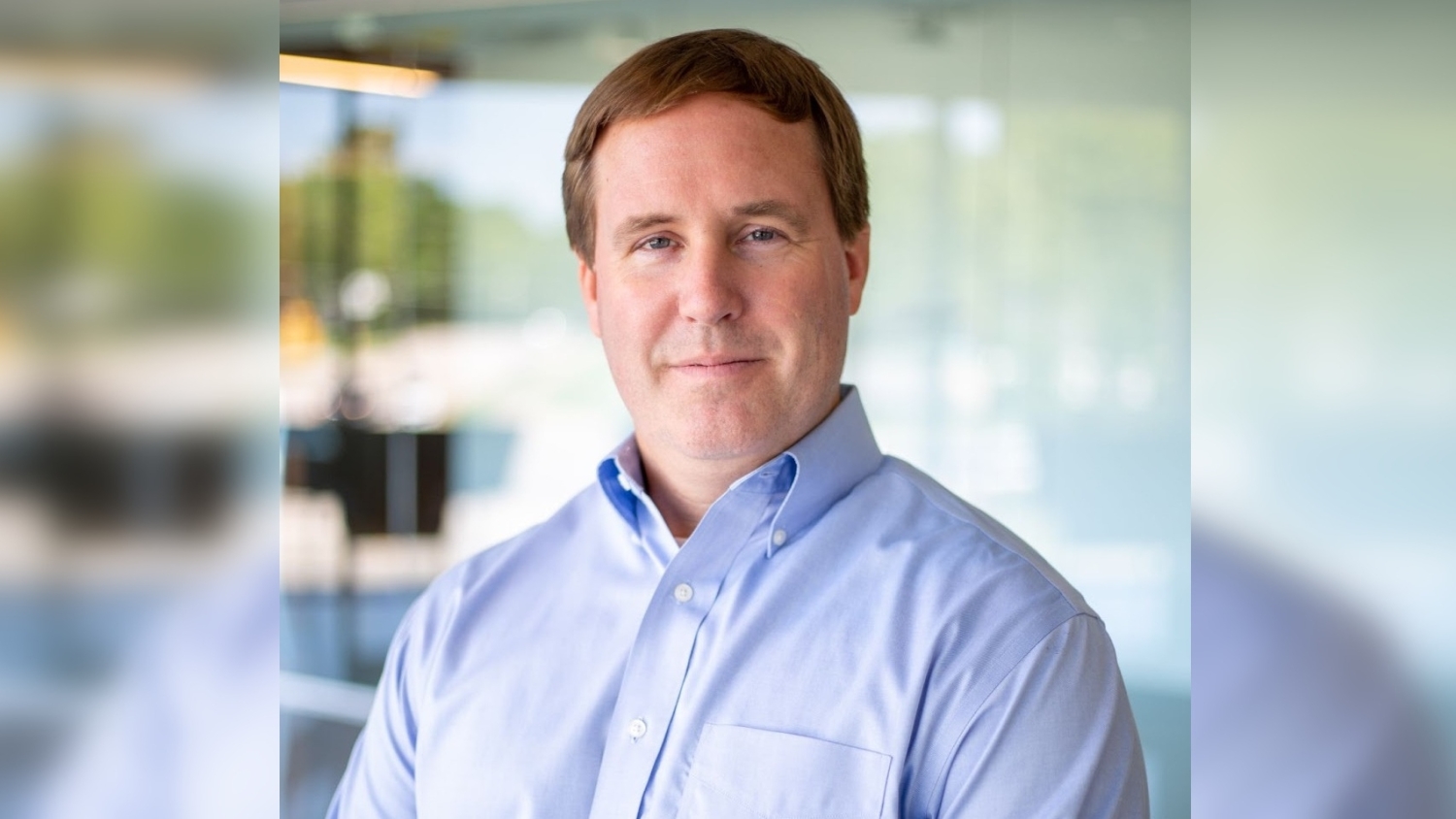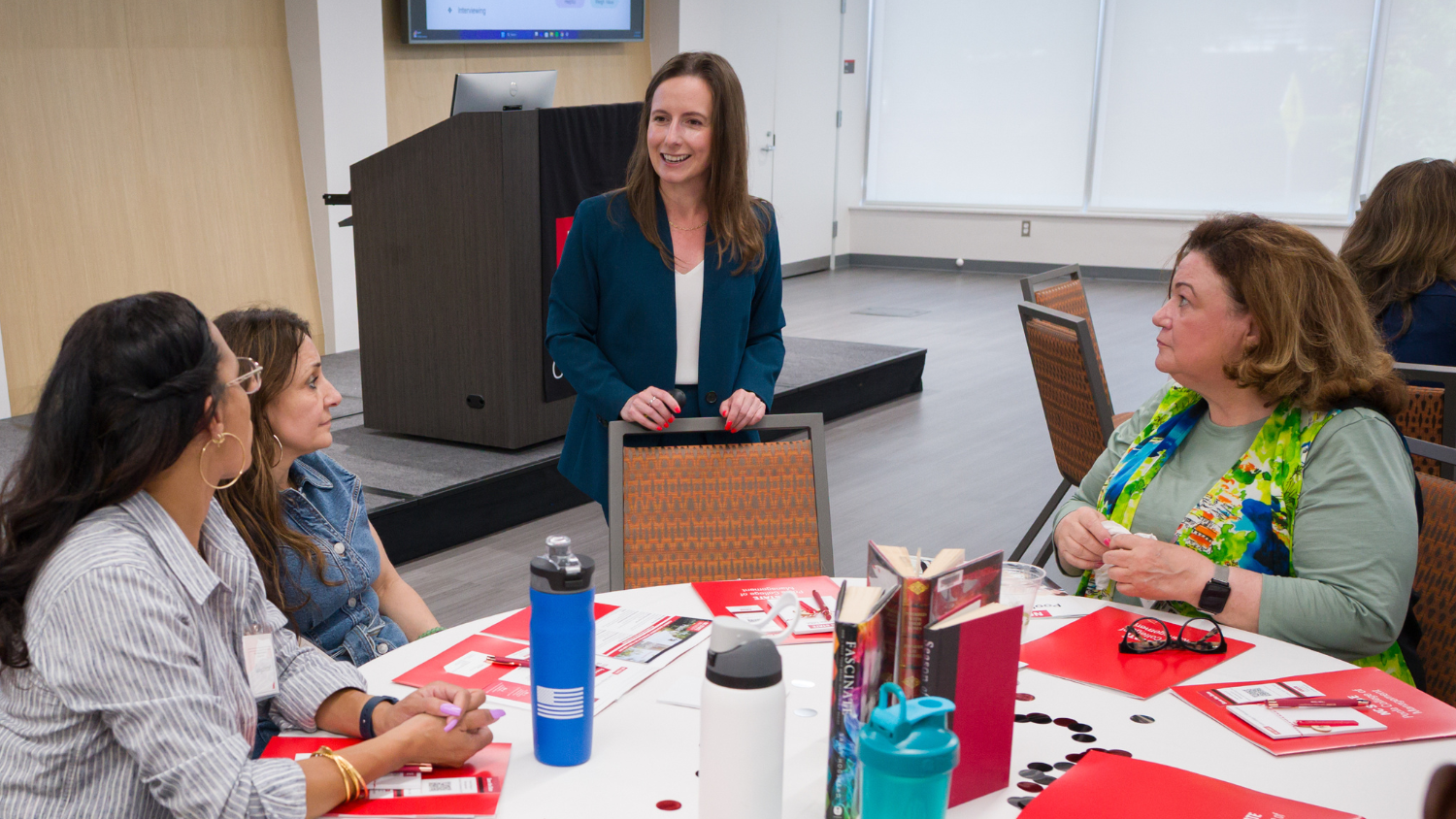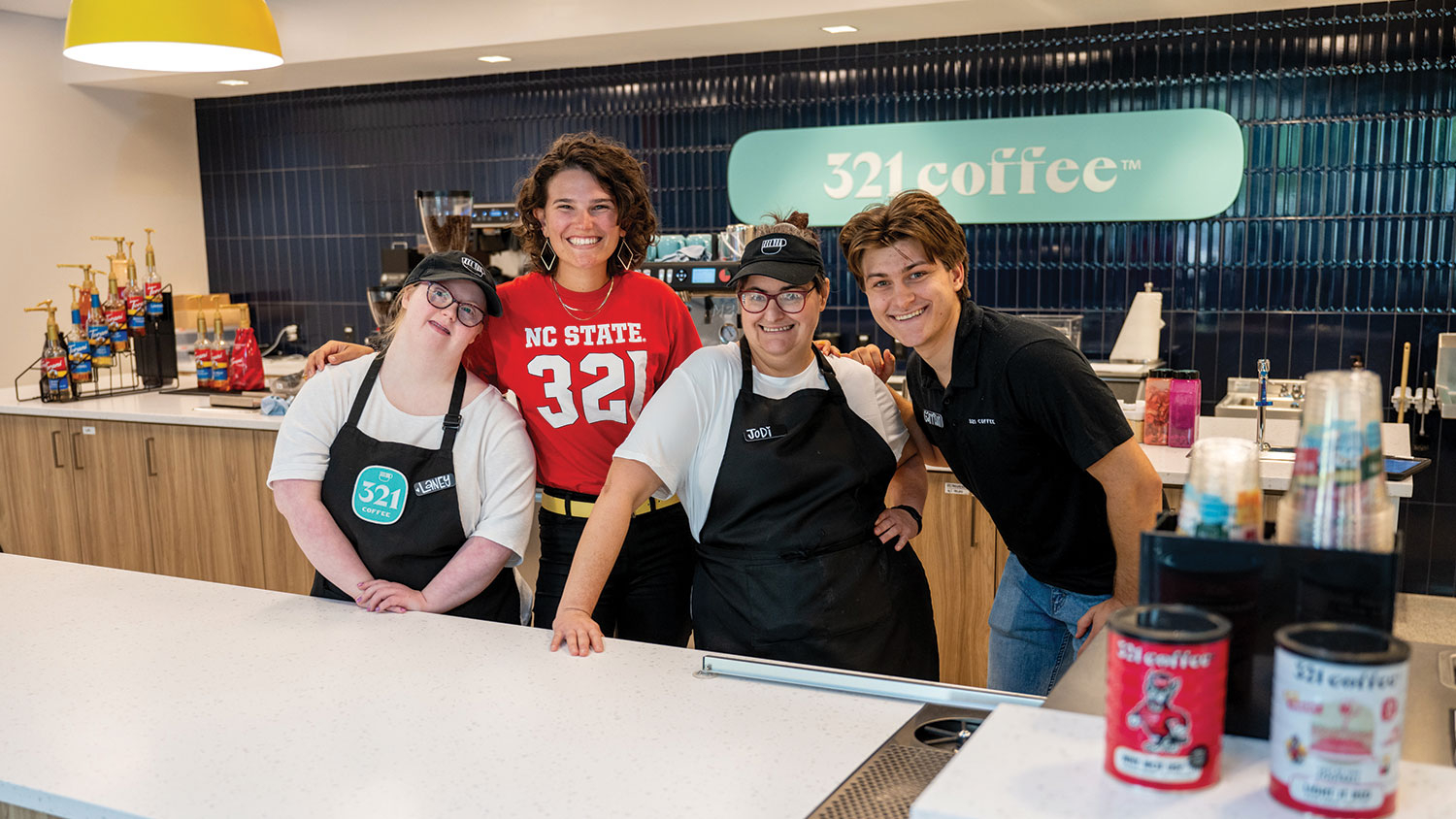Raleigh Native and Civic FCU Executive Joins Pack, Dives Into Risk and Analytics

By Samantha Beavers
Looking back on his childhood, Master of Management, Risk and Analytics (MRA) student Pete VanGraafeiland can point to many fond memories – playing in his backyard that was once the country but is now coveted real estate in Midtown Raleigh… riding his bike to the old North Hills Mall and, of course, cheering on the Wolfpack in Reynolds Coliseum and Carter-Finley Stadium.
“My neighbors growing up were big NC State fans and they always had season tickets. They had five kids who were quite a bit older than me, so when they started getting older, I became the ‘adopted’ kid who got to go to all the basketball and football games. I did that for like 10 years and became a die-hard Wolfpack fan, so I always wanted to go to NC State,” VanGraafeiland says.
His senior year of high school, he even got the Big Red Envelope in the mail. When it was time to make his decision, though, he chose to join the tennis team at Elon University.
“It ended up being the right decision for me. After all, I met my wife – a player on the women’s tennis team – the very first day. She wouldn’t talk to me for a couple years but I persisted,” he laughs.
After graduating from Elon with his bachelor’s degree in business administration, VanGraafeiland landed a job in the credit union industry as a loan officer with State Employees Credit Union (SECU) – and he hasn’t looked back since.
“I love what credit unions do and I love what I do, so I’ve been loyal to the industry throughout my entire career. The whole concept behind credit unions is to serve people. You often hear the tagline ‘not-for-profit but for service’ and that really captures it. Better service is our goal, so we offer lower loan rates and higher deposit rates than what you’d typically find in a community or retail bank. We blow the competition out of the water,” he continues.
After working at SECU for a few years, VanGraafeiland got his MBA from Campbell University and joined Coastal Federal Credit Union to oversee indirect lending operations. Then, in 2014, he started an exciting new venture.
“I was given an amazing opportunity to be part of starting a de novo credit union. The idea was to design a digital financial institution that offered all modern banking functionality without a branch infrastructure. Today, Civic Federal Credit Union (FCU) has become the fastest growing credit union in the United States within our asset grouping,” he says.
As senior vice president of member services and digital banking for Civic FCU, VanGraafeiland currently oversees the contact center and digital banking platforms to make the member experience a seamless one.
“As a digital-only credit union, it is critical for our members to easily access our services. From account opening and online banking to consumer lending, we’re focused on making sure our members receive the help they need,” he says.
Another big part of his role is managing and preventing fraud in order to make the institution more secure and protect members’ money and identities. This is where risk management and analytics really comes in – and where VanGraafeiland gets particularly excited.
“I mean, I can geek out about this for a long time. The challenge we’re faced with is validating identities without having individuals across a bank teller desk. So, we’re running identity reports and using the various tools at our disposal to make sure that we’re saying yes to the right people and saying no to the fraudsters,” he explains.
Traditionally, fraud primarily involved stealing identities. In this day and age, though, it usually looks a little different. Now, there’s a new type of fraud called synthetic identity, where fraudsters take elements of someone’s identity and use it to create a fictitious person – perhaps using someone’s social security number but then applying for an account with a different date of birth, for example – in order to commit check fraud, funds transfer fraud or loan fraud.
“This kind of fraudulent activity is something that hits every kind of financial institution, but we’ve developed some really cool, sophisticated tools to detect it. For instance, we know that the way that you hold your phone is very unique to you – from the pressure you apply to the angle you hold it to your ear during a phone call. We’ve developed some parameters to determine what’s in the normal range, so if someone else tries to log on to your account, the data will show that something is off.”
In addition to monitoring fraud, risk management and analytics play an important role in the credit union industry’s viability and sustainability. For financial institutions dealing with money, loans and sensitive personal information, these are essential – protecting them against data breaches and from people with histories of bouncing checks and mismanaging accounts, for instance.
But, according to VanGraafeiland, it’s a lot more than that. Because credit unions are focused on serving people, risk management and analytics also help these institutions deliver more value.
“Through analytics, we can become more efficient so we can offer better rates on loans and deposits, while also improving our services to better meet our members’ needs. If we notice that several folks are logging in each week to transfer money, we can start gleaning useful insights from the data. How often are they doing this? How long does it take? Should we make the process simpler for them?” he explains.
“We also use real-time data from our online account opening applications. One thing we like to do is see how many people abandon applications and at what point they stop in the process. Are they leaving after page one? Why?”
For all these reasons and more, VanGraafeiland found that Poole College of Management’s MRA program was the perfect fit. Building stronger foundations in these important skills needed to solve complex problems in the industry, the program will allow him to be a stronger, more capable executive leader – not only safeguarding the institution from perils, but also maximizing opportunities to serve members and embracing risk if it means setting the institution up for long-term success.
On the personal side, he’s looking forward to finally joining the Wolfpack – and keeping up with his wife.
“My wife Julianne got her Ph.D. in economics at NC State and is now an economics professor in the Agricultural and Resource Economics department for the College of Agriculture and Life Sciences. She’s way smarter than I am and I don’t understand what she says half the time. She’s always reading something or learning something new. We have three kids and I swear she’s preparing them for Harvard. I figured if everyone’s studying all the time at our house, I might as well join them. But in all seriousness, she’s a big part of my motivation for joining this program – she’s always reminding me of the value of lifelong learning,” he says.
And she’s not the only one.
“For as long as I can remember, my parents have preached the value of education and hard work and offered their continuous support. I can’t thank them enough for that – and pretty much just for putting up with me. My boss, Dwayne Naylor, has also played an important role. He’s a phenomenal guy who’s probably done more for my career than any one person. He makes coming to work fun. And as our president and now our CEO, Dwayne has always promoted the concept of executive education and continual learning across the organization,” VanGraafeiland says.
“So, for me, joining the MRA program isn’t just about getting an advanced degree under my belt. Instead, I see it as a unique opportunity to grow professionally and become a more effective leader. I think it’s the perfect match.”
This post was originally published in Master of Management Risk & Analytics.


